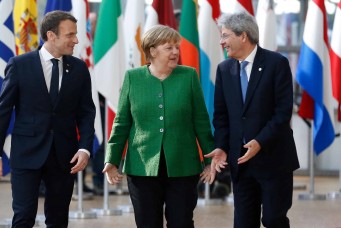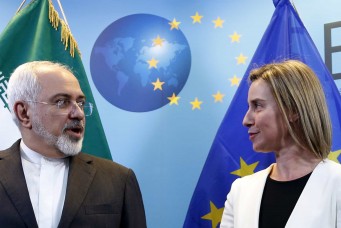Is Europe Facing a Crisis?
Is Europe facing a crisis? There were two opposite views in “The Future of Europe,” the latest panel discussion in AUC’s Tahrir Dialogue series. Ambassador of France in Egypt Stéphane Romatet said that for the first time in over seventy years, Europe is experiencing a “deep internal crisis,” marked by the rise of Euroscepticism within political parties (skepticism and rejection of the European Union), the dismantling of its territory, and the crisis of federalism in countries like Belgium, Scotland, and Catalonia. The reasons, he said, are that “Europe is no longer seen as a bulwark of protection” against the sweeping winds of globalization, as well as the rising security threats toward the east and fears many Europeans have of unregulated migration, terrorism, and the place of Islam and religion in their societies. He called for a refunding of the European Union project with a focus on defense and protection of borders, among other things. A positive harbinger, he added, is France’s recent election of Emmanuel Macron as president—a pro-European Union centrist.
Brexit, however, is a “tragedy” for Europe, Romatet believed, which means that Britain will probably not have a say in the European Union’s future reconstruction process, and therefore lose its influence over the entire continent. John Casson, the UK ambassador to Egypt, on the other hand, said he was more optimistic about the future of European Union, regarding the UK’s current struggles with Brexit as part of the larger remodelling of the world’s political systems. He argued that in the twentieth century, the nation-state model triumphed as the example by which most countries governed themselves but today there is a need for a new democratic system. “I don’t think that Brexit will occupy many pages on its own [in history books],” he said. “I think it will be seen as a quite technical feature of this wider effort to re-found nation states.”




